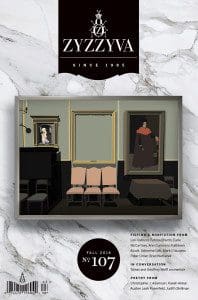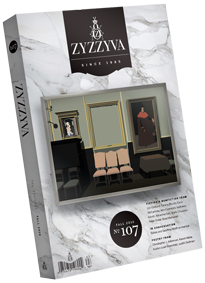 Oh, I have suffered with those that I saw suffer! A brave vessel, who had, no doubt, some noble creature in her, dashed all to pieces! —Miranda, The Tempest
Oh, I have suffered with those that I saw suffer! A brave vessel, who had, no doubt, some noble creature in her, dashed all to pieces! —Miranda, The Tempest
The day began with the smell of coffee and the sound of my father knocking around in the kitchen. I pulled aside the curtain to find the big dipper shining bright above the meadow, a pearly patch of sky marking the spot where the sun was about to come up. I listened. Refrigerator door. Rummaged silverware. A sheet of tinfoil ripped from the roll. My father was making sandwiches. I screamed.
The rabbit ears on my TV trembled. This was my brother, Richard, walking like he wanted everyone to know where he was at all times. The door swung open and there he stood, fully dressed, backlit, a hostile figure made of darkness.
“Spider,” he said. “Wake up.”
I made a show of shielding my eyes from the light. “I’m awake.”
“Good,” he said. “Then go back to sleep.”
“But I’m up now.”
“It’s early,” he said. “You were screaming.”
“I was?”
He examined with disgust the segment of my room laid bare by the light from the hall. With his foot, he closed a book that sat open on the floor. “I’ve got a big day ahead of me,” he said. “Go back to sleep. No more shouting. No more nightmares.”
But I had no intention of going back to sleep. I counted to a thousand, giving Richard time to settle into breakfast and to tell my father that I’d had another nightmare—I’d been having them all summer, ever since my grandfather died—and then I pulled out my ponytail, rubbed my hands all over my hair to make myself look extra unsettled, and joined my brother and father in the kitchen.
My father leaned against the counter sipping coffee from a teacup, the portable radio at his elbow murmuring the marine weather forecast. Richard held his face about an inch above his cereal bowl, mouth open, spoon in hand. From his frozen expression, I knew that he could see what I was up to.
“Miranda, honey,” my father said. “Are you OK?”
“I’m fine,” I said. “I’ll be all right.”
“No, no, no, no, no,” Richard said.
“But I don’t think I can get back to sleep.”
“No, no, no!”
My father glanced at the stairway. You could run a lawnmower through the kitchen without waking my mother, but still he lowered his voice to say, “You know what? Why don’t you come shark fishing with us after all.”
Richard put down his spoon with a clatter. Before he could argue, I ran upstairs to get dressed. I’d laid out everything the night before: bathing suit, shorts and shirt, baseball cap, old sneakers. From under my pillow, I retrieved my lucky pen knife. Richard could have trumped me by waking up our mother, who’d already declared that nothing good could come of letting an eleven-year-old insomniac go shark fishing. But I knew Richard wouldn’t tell. He was my older brother and a constant adversary, but he was also a man of honor.
We drove to the marina with Butch’s boat looming in the rear window, jostling over every bump, seeming as impatient as we were to get where we were going. While Butch backed the trailer down the ramp, Richard and I crossed the gangway to the floating dock. With great satisfaction, I watched Richard run his hand along the rail, unsure of his sea legs. He took up a position at the dock’s edge, knees bent, hands out, looking ready to receive a hiked football. The boat came squealing down the rubber rollers, but before it got to Richard, Butch stepped in and took hold of a cleat on the stern. I caught Richard frowning at Butch’s back like he was considering pushing him in.
He came and stood next to me, distancing himself from the temptation. “You’re going to be hot in that stupid getup,” he said.
I wore black shorts, black sneakers, a black hat, a black T-shirt. I always wore black.
“I’ll be fine,” I said. “I like to be sweaty.”
“It’s my birthday,” he said, “and you’re dressed like a freak.”
“What does your birthday have to do with it?”
“You shouldn’t even be here. Do you have any idea how dangerous these sharks are? Butch, tell her how scared she should be.”
“We’ll be lucky to make it home in one piece.”
The boat lifted off the trailer, and the name Melody bobbed in front of me. My father hoisted himself onto the dock and handed Richard a rope that he’d tied to the bow. To me he said, “Don’t listen to these jokers. They’re just trying to frighten you.” His soggy loafers slapped against the planks as he and Butch loaded the coolers.
Richard sulked. He sighed. He cast the rope back and forth like a whip, like he meant to teach the water a lesson.
Butch said, “Cheer up, Junior. Without your sister here, you’d have nobody to terrorize.”
When my father offered me a hand, I ignored it and jumped aboard. I took a seat on the little shelf between the gunwale and the engine cover, where I could watch the water behind the stern begin to boil. Butch took hold of a corner of the cabin and shoved us off, his calves bulging as he walked the boat down the dock like a strongman pushing a railroad car. As we cleared the end, he leaped aboard and stood on the prow, tenting his hand above his eyes to gaze across the flat, grassy meadow. Through the early morning haze, I could just make out what he was looking at: the cooling tower for the nuclear reactor on Artificial Island. It sat on the horizon ten miles away, disgorging a crooked column of clouds.
“Is that sucker spooky or what?”
As Butch spoke, my father spun the helm to bring us around. Butch regained his balance by grabbing the aerial. “Christ, Dick,” he said. “It’s too early for a swim.”
He climbed down to take the wheel and offered me a wicked look—me alone, not my father or brother. I was his audience. I could see that. And having me as an audience, along with the thrill of nearly falling overboard, seemed to inject Butch full of something wild. He cracked open two beers, and before we’d reached the end of the no-wake zone, he floored the throttle. Melody reared back and roared. I held onto the gunwale as we jumped through the last line of floats and entered the maze of the meadowlands. We cleaved the slicks, shattered through the shallows, flew around bends with chop pounding the hydroplaning hull like it was shooting it full of rivets.
Everything—the islands, the foxtails, the old pilings, the dead trees—moved past us faster than the cooling tower, which squatted on the horizon like a cauldron, its row of white warning lights winking at me. Butch saw me looking, gave it a nod and yelled, “I always feel like it’s watching me!” Then he cut a turn so close to a buoy that I could have reached out and had my arm ripped off.
When I looked again, the cooling tower had dissolved in the haze. We left the meadow for the bay, and the world’s ragged edges fell back. There was a sudden opening into brightness. The horizon was a line pulled tight, dividing blue from blue—and as we hit the chop in the open water, much of that blue turned white. The inboard screamed as it dug in, and a jet of white water leapt up behind us, crumbled from the top to spin and scatter. Butch squinted at me through a rainbow in the vapors, smiled, and opened up the throttle even further.
Between the walls of froth and the lifting cabin I could still make out a segment of horizon. I used it to steady myself as we lifted and plunged. As I watched, a long, low shape, black above red, materialized out of the haze. A supertanker. We were nearing the shipping lanes. Now, yes, I was afraid. Long after we’d left the enormous ship behind us, we hit its wake. Melody was a cabin cruiser, maybe twenty feet long, no bigger than my bedroom. As we dove into each trough, the plunge sent plumes of hard water soaring out to fizz against the next rising swell. On the deeper dives, my body left the seat, and the physical disorientation felt like madness. Butch laughed, clenching a doused cigarette between his teeth. My father gripped the canopy prop as he sipped from a dripping can of beer, beads of water quivering on his glasses and in his moustache. Richard stuck his arms into the spray to splash saltwater on his face. I held onto the gunwale for dear life.
Through all this, I kept my free hand clenched around the opening to my hip pocket, pressing my pen knife tight against my thigh. The movement of the boat, all the soaring and plunging, had me worried that my knife might fall overboard. My grandfather had given me that knife the day he died. I never should have brought it with me.

